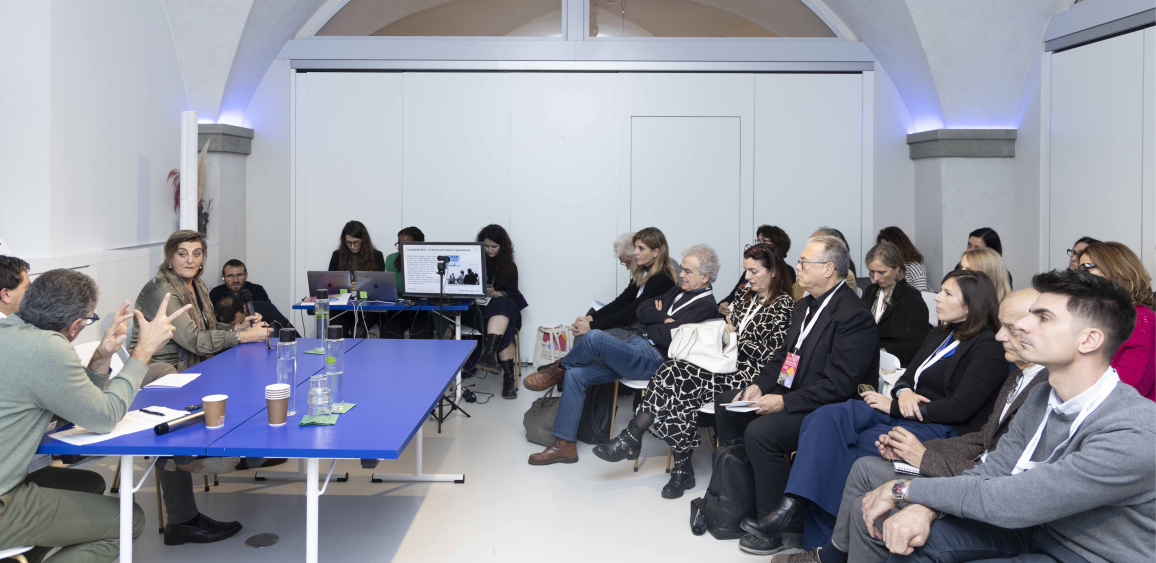Franco Marini, Carmen Giannino, Simone Ombuen, INU, Aldo Ianniello, Regione Toscana
The “territorial dimension of cohesion policy”, already introduced in the 2014-20 cycle, is strengthened in the new Community programming cycle 2021-27, so much so that an article of the General Regulation with the significant title “Integrated territorial development” states that “the Member State shall support integrated territorial development through territorial and local development strategies.”
In order to strengthen the integrated approach to territorial development in the same General Regulation it is asserted that “investments in the form of territorial instruments, such as integrated territorial investments (ITI), community-led local development (“CCLD”) or other territorial instruments in the context of the strategic objective – a Europe closer to the citizens – in support of initiatives developed by the Member State for investments planned for the ERDF, should be based on territorial and local development strategies”. In addition, “for the purposes of the ITI and the territorial instruments developed by the Member States, minimum requirements should be laid down on the content of territorial strategies”.
The INU focused on the content of the territorial strategies, as part of the Economic and Social Partnership for the 2021-2027 programming (The Economic and Social Partnership aims to promote the participation of representatives of economic and social forces in the definition of Cohesion Policies)The Committee stressed the need for a closer relationship between economic planning and spatial planning, and also sought to raise some crucial questions not only for town planning but for the same success as future planning.
From the comparison emerged some issues, on which it is interesting to probe the ongoing experiences in the Italian cities engaged in the definition of their territorial strategies. What can be the contribution of urban planners in their definition? How can urban planners and economists interact in the definition of strategies and accompanying documents, be they regional or municipal?
With the launch of the ERDF and ESF Regional Operational Programmes on the one hand and the new Urban Agendas with which the administration of large and medium-sized cities will have to be measured on the other, the conference intends to analyze how some administrations are interpreting the theme of the programming of Community resources 2021-27 in relation to a vision of their territories, in which the themes of the fight against climate change, sustainable development, mobility, urban regeneration, the digital agenda and support for the vulnerable sections of the population, which make up the framework of Community funding, including those of the PNRR, should find the coherence and integration desired by Community regulations.
PROGRAM
14:00 – 14:30 registration
14:30
Opening of works
Carmen Giannino, INU National Board
14:45 – 15:00
Introductory report
Franco Marini, INU – Community “Community resources for projects”
15:00 – 17:30
Case studies
“The Territorial Strategy Document for the use of Community programming funds 21-27”
Margherita Scoccia, Councillor for Urban Planning, Municipality of Perugia
Carlo Gasparrini, Consultant
“Cohesion Policy 2021-27. The integrated territorial planning of the Emilia Romagna region for urban areas and mountain and inland areas”
Caterina Brancaleoni, Head of European Policy Coordination, Emilia-Romagna Region
“The territorial dimension in the 21-27 programming of the Tuscany region”
Marco Carletti, Manager of the Information System and planning of the territory, Tuscany Region
“The programs for the regeneration of Ostia”
Maurizio Veloccia, Councillor for Urban Planning, Rome Capital
Enrica De Paulis, Managing director, Rome Capital
“The experimentation of the Metropolitan Regeneration Programmes financed through the Metropolitan Equalisation Fund”
Alessandro Delpiano, Director of Planning, Metropolitan City of Bologna
Maria Grazia Ricci, Director, Metropolitan City of Bologna
“Metropolitan City of Naples”
Laura Lieto, Deputy Mayor and Councillor for Urban Planning, Municipality of Naples (tbc)
17:30 – 18:15
Round table
Moderate
Simone Ombuen, INU, Roma Tre University
Participant
Federico Lasco, economist, Public executive
Alessandro Leon, CLES, economist expert in community programming
Francesco Monaco, Head of Department Support to European Municipalities and Political Studies, IFEL ANCI Foundation
18:15
Conclusion
Michele Talia, INU President
Italiano

